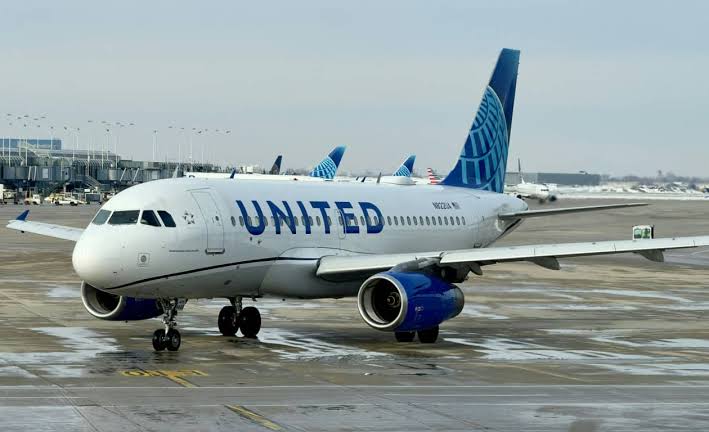Severe Weather Disrupts Over 2,100 Flights Across U.S., United Airlines Hit Hard
Severe Weather Disrupts Over 2,100 Flights Across U.S., United Airlines Hit Hard
In a major blow to air travelers across the United States, severe weather conditions caused the disruption of more than 2,100 flights on Tuesday, June 18, sending ripple effects through airports nationwide. United Airlines was among the most significantly impacted carriers, experiencing widespread delays and cancellations as powerful storms swept across multiple states, grounding planes and stranding thousands of passengers.
A Sudden Shift in Weather Patterns
The chaos began early Tuesday morning when meteorologists from the National Weather Service (NWS) issued severe thunderstorm and tornado warnings across large parts of the Midwest and Northeast. By midday, major airports in cities like Chicago, New York, Washington D.C., and Philadelphia were grappling with heavy rain, lightning, and gusty winds.
The unexpected intensification of weather systems caused a cascade of delays, as ground crews were forced to suspend operations for safety reasons and visibility on runways was significantly reduced. This had an immediate domino effect on airline schedules.
United Airlines Among the Worst Hit
According to flight tracking service FlightAware, United Airlines canceled or delayed hundreds of flights by Tuesday evening. The carrier, based in Chicago, found its hub at O’Hare International Airport paralyzed for several hours due to severe lightning and wind gusts topping 50 mph.
United issued a statement expressing regret for the disruptions, saying,
> “The safety of our passengers and crews is always our top priority. Due to hazardous weather conditions impacting several of our key hubs, we are working diligently to rebook affected travelers and resume normal operations as quickly as possible.”
At least 430 United flights were delayed, and over 180 were outright canceled, making it one of the most affected airlines during the weather event.
Passengers Left Stranded
For travelers, the situation was nothing short of frustrating. Social media platforms were flooded with photos and videos of crowded terminals, long lines at customer service counters, and passengers sleeping on airport benches.
Amanda Lewis, a traveler stuck at Newark Liberty International Airport, told reporters:
> “My flight to Dallas was delayed three times, then finally canceled. There were barely any announcements, and the lines to speak to a representative were hours long. It’s a nightmare.”
Many passengers complained about limited rebooking options and difficulties accessing customer service via phone or mobile apps. While United and other carriers provided hotel vouchers in some cases, others were left to fend for themselves, booking last-minute accommodations or sleeping in terminals.
Other Airlines Also Affected
Although United bore the brunt of the weather-related chaos, other major U.S. airlines were not spared. Delta Air Lines, American Airlines, and Southwest Airlines also reported hundreds of delays and dozens of cancellations. Altogether, more than 2,100 flights were affected across the country, with ripple effects likely to be felt for days.
Hartsfield-Jackson Atlanta International Airport, LaGuardia Airport, and Denver International Airport were also among the most impacted.
FAA and Airport Response
The Federal Aviation Administration (FAA) issued several ground delay programs throughout the day in response to the storms. These are designed to manage air traffic flow and prevent unsafe takeoffs and landings during turbulent weather.
An FAA spokesperson said:
> “We are closely monitoring the situation and working with airline partners to minimize disruptions. Weather events of this nature create challenges, but safety remains our number one priority.”
Airport staff in affected cities worked overtime to manage the surge of grounded passengers, offering water, snacks, and updates where possible. However, resources were stretched thin in some hubs due to the high volume of delayed and canceled flights.
Travel Experts Advise Caution
Travel experts are advising flyers to remain flexible and vigilant over the coming days, as airlines work to recover from the scheduling backlog. Summer travel is already approaching peak volume, meaning any delay can have a compounding effect on subsequent flights.
“Whenever there’s a large-scale disruption like this, it typically takes 24 to 48 hours to fully recover,” said Henry Harteveldt, an aviation analyst with Atmosphere Research Group. “Unfortunately, we may see more disruptions if weather conditions continue to deteriorate.”
Harteveldt recommends checking flight statuses regularly, arriving at the airport early, and booking flexible or refundable tickets whenever possible.
Climate Concerns and Infrastructure Pressure
Tuesday’s weather disruptions have renewed concerns about how climate change may be impacting the reliability of air travel. Increasingly frequent and intense weather events — including thunderstorms, hurricanes, and wildfires — are placing pressure on aviation infrastructure.
Aviation and climate experts have warned that as the planet warms, extreme weather events are likely to become more common, affecting not only flight schedules but also airport infrastructure and long-term planning.
“Storm systems like what we’re seeing now are expected to increase in both frequency and intensity,” said Dr. Lisa Mendez, a climate scientist at the University of California. “The aviation industry needs to adapt to this new normal — through better forecasting tools, improved passenger communication, and upgraded airport facilities.”
Looking Ahead
As of Wednesday morning, flight operations are slowly beginning to normalize in some areas, but United Airlines and other major carriers are still working through a backlog of flights. The airline has advised passengers to check the status of their flights online or via the airline’s mobile app and has waived change fees for travelers affected by the disruptions.
While weather remains an uncontrollable factor in air travel, the scale of Tuesday’s disruption underscores the importance of preparedness, communication, and responsive customer service.
For now, stranded passengers are hoping for clearer skies ahead — both literally and metaphorically. United Airlines has promised a full review of its handling of the situation and is urging passengers to reach out if they need help rebooking or filing for compensation.
—



![Szef MON o dywersyjnych działaniach Rosji. Mówił o “podwójnym efekcie” [RELACJA NA ŻYWO]](https://sportdomain.com.ng/wp-content/uploads/2025/11/udyk9lBaHR0cHM6Ly9vY2RuLmV1L3B1bHNjbXMvTURBXy9mZjUyM2M2Yjc4NjM1MTM0NWYwZTY4ZmQ0OTRiZjlkNy5qcGeSlQMAXM0Lkc0GgZMFzQLQzQGU3gACoTAHoTEE.avif)


